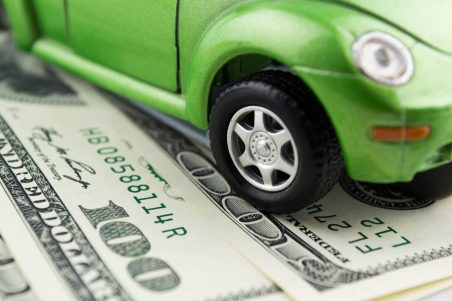The Economics of Owning a Car

Chances are if you’re in over your head in unsecured debt, you’re probably trying to find ways to scale back your monthly budget so you can start paying your way toward financial freedom. Luxuries, such as travel and dining out, are a great place to start, but have you done the math on the full cost of owning a car?
To get an idea, take a look at our cost breakdown:
- The average auto loan amount in 2016 was just over $30,600 for a brand new car and $19,300 for a used one.
- The average monthly payment for a new car was almost $500 per month.
- The average annual interest rate or APR for a traditional 60-month auto loan is about 4.21 percent; however, rates will vary widely depending on your FICO credit score.
- The average cost of car insurance in the US is about $1,500 per year, though rates will differ depending on the state you live in, your age, and coverage amount, among other factors.
- Gas costs about $2.13 a gallon across the US. If you drove a newer sedan, such as the popular Toyota Camry, an average of 15,000 miles per year, you’d spend about $1,340 on gas annually.
- Other costs to consider, include registration fees, parking – especially if you live in a heavily populated urban area, and maintenance costs.
- The total monthly cost of owning a vehicle in 2016, according to AAA estimates, was over $700 per month or just over $8,500 per year.
Let’s talk a bit more about interest: The lower your score, the higher the APR on your car loan is likely to be. For example, if you fell in the 500 to 589 range, you could be charged an annual interest rate as high as 15.24 percent. Of course, the better your credit, the lower the APR. The average APR for those with credit scores that fell between 720 and 850 is about 3.60 percent – but with mounting unpaid bills, we’re going to guess you do not fall within this range.
While it may be tempting to lower your monthly car payments with the increasingly popular 73 to 84 month terms, you could pay exorbitant amounts in interest, especially if you have a lower credit score. To demonstrate, say you took out a $20,000 73-month loan for a used car with, unfortunately, an interest rate of 14 percent. You would end up paying almost $10,000 in interest! Some used cars don’t even cost that much.
So, is car ownership right for you? Does the cost of your current car fit into your monthly budget? If you answered no to either of those questions, there are some possible alternatives that can help you scale back your vehicle-related costs:
- Instead of buying brand new or used cars from dealerships, consider purchasing a used vehicle directly from the owner. You might find an option that you can afford to buy outright, helping you avoid high monthly payments.
- Purchase a used electric vehicle (EV). Used EV prices are falling substantially. Not only could you possibly afford to pay in full, but you could take advantage of lower “refueling” costs. The average cost of electricity is 12 cents per kWh, which equates to about $540 per year to recharge if you drove about 15,000 miles. That’s less than half the amount to refuel a traditional gas-powered vehicle. Plus, many cities offer free charging stations.
- Ride-sharing systems, such as Uber and Lyft, make it possible to get around without owning a vehicle. The average cost per ride is between $12 and $14. If you don’t need to commute very far or at all, ride-sharing is a great, low-cost alternative.
- Public transportation also costs less per month than owning a car. The average monthly cost to ride the public bus, train, or subway is about $135. Of course, this varies depending on the city you live in.
With this information, you can make a more informed decision as to whether owning a car is the right fit for your monthly budget. As for the mounting debt, you can always contact us at New Era Debt Solutions. We’ve been helping people get out of debt quicker – and for less – since 1999.
